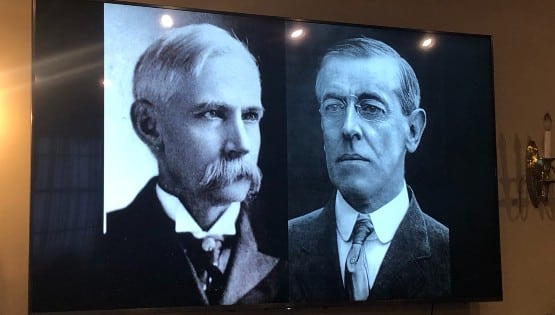Streamlining effort could raise revenues, but at the cost of jobs

[email protected]
The state of Virginia is losing as much as $400 million a year to uncollected taxes from Internet retailers. Streamlining a process for collecting them isn’t as easy as some would like to make it out to be – and could cost jobs in the meantime.
“We don’t dodge taxes. We pay our taxes. We pay on time. And if we make a mistake of some sort, we pay our penalties. That’s not the issue. This is supposed to be simple, but it’s everything but simple,” said Stacey Strawn, the co-owner of Blue Moon Galleries, a Waynesboro-based Internet retailer that grew from a desk in a converted bedroom office.
Now employing six, Blue Moon is by every definition a Main Street mom-and-pop – taking up residence in an abandoned building on Main Street in struggling Downtown Waynesboro, with co-owners in the husband-and-wife team of Strawn and Steve Dahl.
It’s the Main Street mom-and-pops who are ostensibly the focus for advocates of a streamlined sales tax. An effort has been under way dating back to the early part of the 2000s decade aimed at corraling the tax revenues lost to the intricacies of the U.S. tax system, which leaves the collection of sales taxes to the individual states and localities.
“Our goals are to make sales-tax administration simpler for retailers and to get all the sales taxes collected that are currently going uncollected,” said Scott Peterson, the executive director of the Streamlined Sales Tax Governing Board.
Twenty-four states have signed on to formal participation on the Governing Board. Virginia is not among them, though State Sen. Emmett Hanger, R-Mount Solon, has been an active backer of the move toward streamlining sales-tax collections.
“Nobody likes to pay tax. That’s a given. But we have policies in Virginia that say the collection of sales tax is going to be used to pay for schools, public safety, health and human services, and we have a mechanism set up now where you can avoid that tax in an unfair manner. That’s another issue. We’re missing out on revenues to pay for core government services, and it’s an unfair competitive advantage to Internet retailers versus retailers that are required to collect sales tax,” Hanger said.
The “unfair competitive advantage” argument is a stretch, according to Steve DelBiano, the executive director of NetChoice, an online consumer protection advocate and Internet-taxation expert who estimates the cost to small retailers like Blue Moon to come into compliance with the streamlined sales tax to be in the $15,000-$20,000 range.
“That will break the bank with a small business. And this system is nowhere near simple enough to roll it out and force it on the tiniest of retailers who are creating the jobs and getting us out of this recession,” DelBianco said on a recent edition of “The Kojo Nnamdi Show” on WAMU-FM in Northern Virginia.
“The small business that sells the kind of stuff that is taxable, that small business has more to fear from Wal-Mart than they do from the Internet,” DelBianco said. “The Internet is, well, Main Street’s best friend, because you reach customers all over the country. So what happens when that small business puts up a website and then suddenly has to collect for thousands of jurisdictions, 46, 47 states, where they have to modify their information systems?”
Peterson said streamlining advocates are listening.
“How do we make this system simpler? How do we eliminate those things that are different between the states that create additional costs? That’s been a focus for us from the beginning,” Peterson said. “We’ll never get down to zero. Somebody has to collect the tax, and somebody has to pay the tax. There’s just no way to avoid those two things. But there are a lot of things that we can do, and a lot of things that I think we have done, that get down to reducing the costs. You’re not going to get down to zero, but how close to zero can you get?”
In Strawn’s mind, “the people pushing this are moving further and further away from reality” as they continue their streamlining work.
“I’d like to invite them here to Waynesboro. I’d like to invite them to tour our business,” Strawn said. “Hear what we do, see what we do. I’d love for them to have some knowledge of what’s going on out here in the real world as opposed to a philosophical discussion held at a board-meeting table. Come down to Main Street and talk to me. And then go back to your boardroom and talk about what you’re going to do. Because they have no idea.”










